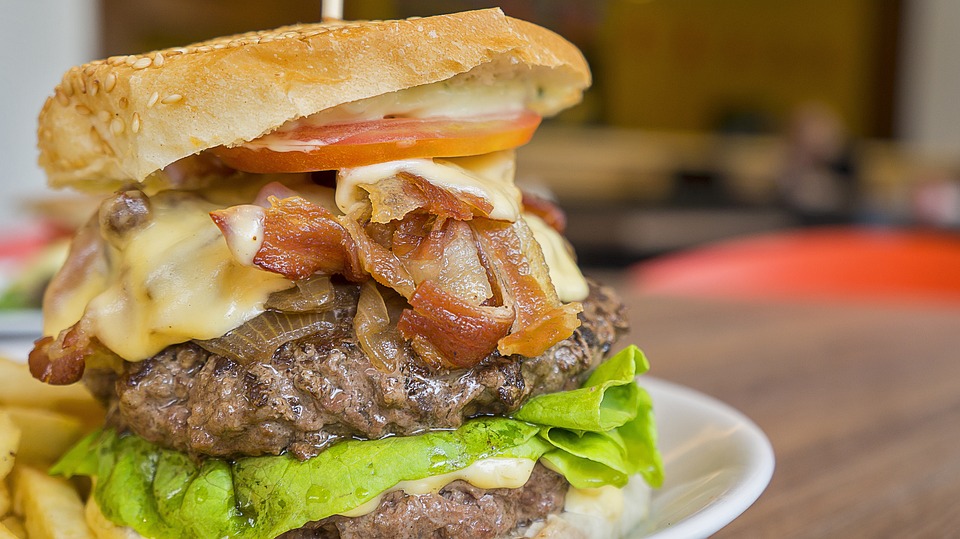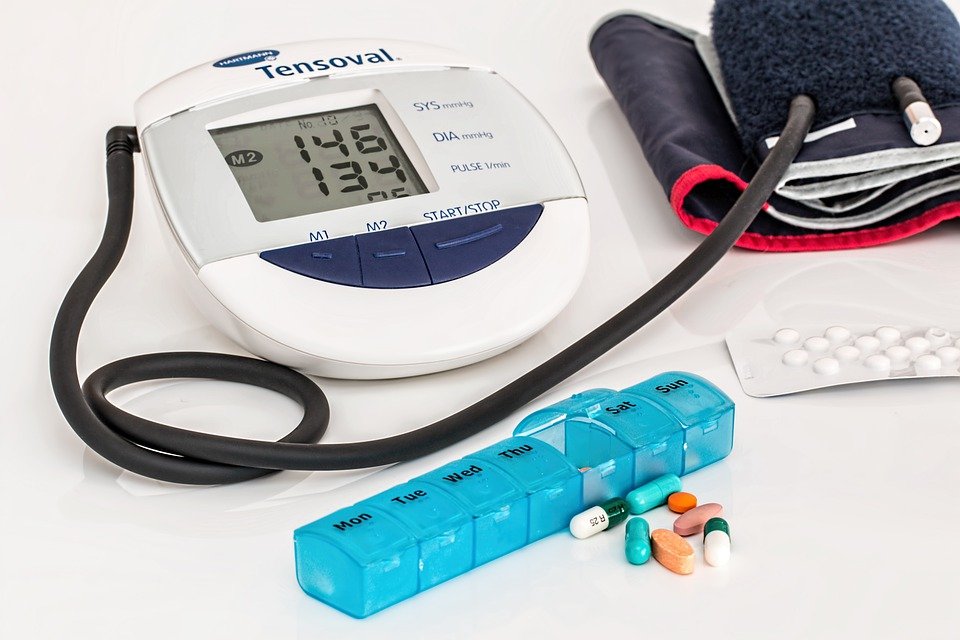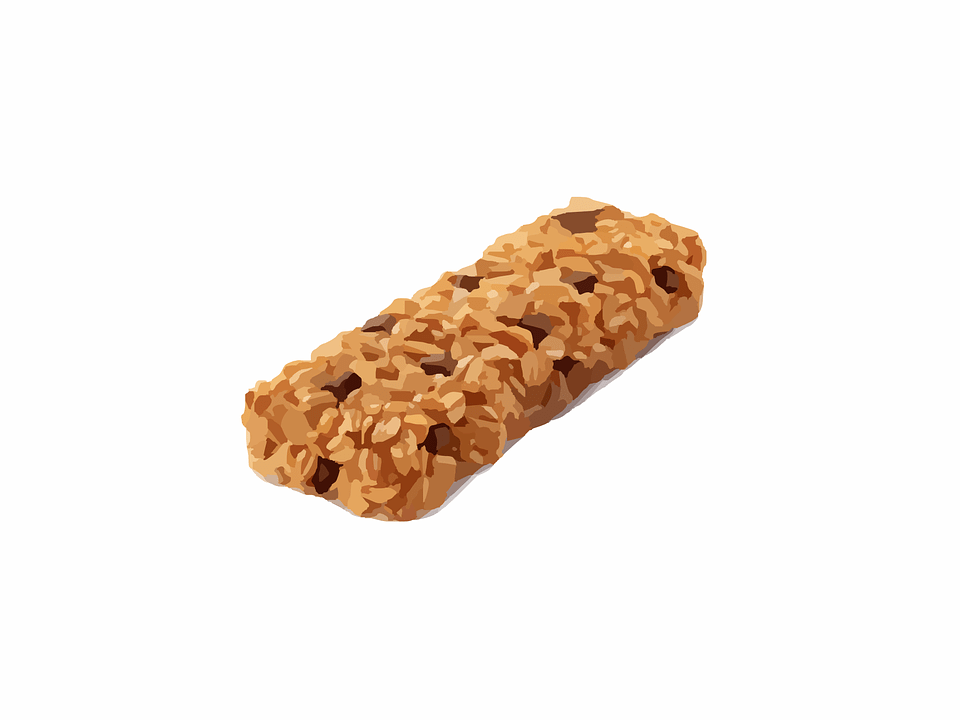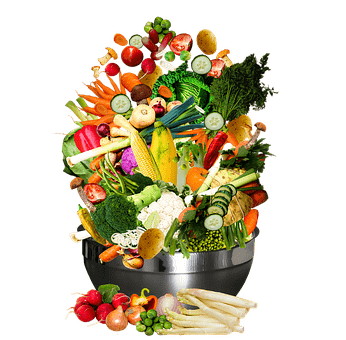
Recently diagnosed with high cholesterol? You ought to be aware that certain food items can assist in diminishing cholesterol and some other items may require being restricted or excluded from your diet altogether. A nutrition specialist who is accredited can be an immense help, particularly when it is necessary to supervise your nutrition and high cholesterol levels.
In this article, nutritionists divulge their knowledge about what should be known if you, or a cherished one, are struggling with high cholesterol.
1. Saturated Fat and Trans Fat Have a Big Influence on Blood Cholesterol
The term “cholesterol” encompasses both the kind found in certain foods and the kind that is tested for during a doctor’s visit via a blood test. Although the word carries the same meaning in both scenarios, there are distinct differences between the two. The AHA states that the liver manufactures all of the cholesterol that is necessary for the body to create cells. Certain types of foods can increase the amount of LDL cholesterol (or “bad” cholesterol) in the blood. Cholesterol usually isn’t the biggest culprit, however.
Studies conducted over a substantial amount of time have demonstrated that an individual’s cholesterol levels are not very much influenced by the consumption of cholesterol in foodstuff, as was widely suggested by doctors previously, according to Lisa Dierks, RDN, a nutritionist and regional head at University of Minnesota Extension Program located in Wanamingo, Minnesota. The AHA states that consuming saturated fat and trans fat will increase LDL (low-density lipoprotein) cholesterol more than ingesting dietary cholesterol.
However, eating food high in cholesterol can not be recommended. A study of 30,000 individuals recently published in JAMA in March of 2019 has indicated that although the most current USDA Dietary Guidelines for Americans no longer suggest limiting cholesterol, cholesterol is still relevant in terms of blood cholesterol levels and the likelihood of developing cardiovascular disease. According to the Harvard University T.H. The combination of fats and carbohydrates which an individual consumes regularly is the main factor that affects their blood cholesterol levels, not the cholesterol that is found in food. Nevertheless, it is important to keep the amount of cholesterol in your diet at a minimum, particularly if you have diabetes.
It turns out that a lot of dietary items which contain a high level of cholesterol also contain a large amount of saturated fat. In accordance with US Department of Agriculture regulations, it is essential to keep a check on saturated fats located in meat items and full-fat dairy, and trans fats located in fried items and processed baked goods like crackers, cookies, and cakes which are also called partially hydrogenated oils. No more than 10 percent of your total daily calorie intake should come from saturated fats.
There have been a lot of debates about if eggs increase our cholesterol levels. Doctor Francisco Lopez-Jimenez from the Mayo Clinic suggests that if you are trying to lower your LDL levels, eating egg whites is a good way to go about it as it is a source of protein that does not contain cholesterols. It has not been determined yet whether shrimp is a beneficial food source, as it is high in cholesterol, yet low in saturated fat, and contains several essential nutrients such as protein. The American Heart Association has stated that shrimp can be a healthier diet option than meat cuts containing high levels of saturated fat, so long as it is not cooked in oil.
2. Not All Blood Cholesterol Is Bad
Receiving the news that you have high cholesterol can be a frightful experience, and deciphering the three cholesterol measurements provided to you might also be perplexing. However, not all cholesterol is bad. The three common indicators of cholesterol usually displayed are considered to be “healthy” HDL (high-density lipoprotein) cholesterol, “unhealthy” LDL (low-density lipoprotein) cholesterol, and overall cholesterol. An elevated HDL cholesterol reading is advantageous for cardiovascular health as it removes undesirable cholesterol from the circulatory system. Having a high LDL cholesterol level raises your danger of having a heart attack or stroke because LDL cholesterol has the ability to cling to the walls of blood vessels and form a plaque buildup, according to the Harvard University T.H. Chan School of Public Health.
3. The Same Things That Lower Bad Cholesterol Raise Good Cholesterol
You have some power over the level of your “good” HDL cholesterol. The Mayo Clinic mentions that those with metabolic syndrome (which consists of being obese, having hypertension, having high triglyceride levels, and having high glucose) usually have reduced HDL cholesterol levels. Decreasing your weight through diet and activity could raise your HDL cholesterol levels. Using the same nutrition advice that reduces LDL cholesterol can also increase HDL cholesterol levels.
It has been established through research that taking large doses of niacin can raise HDL cholesterol concentrations by up to 35%, as suggested in the Advances in Preventive Medicine in July 2018. Despite this, the Mayo Clinic mentioned that drugs that increase HDL do not reduce the risk of heart attack.
4. One Food Alone Will Not Lower Cholesterol
In the same manner that no single food will lead to high cholesterol, there is not a single food that will be the solution to your problem either. “There are no magic foods. Judith Wylie-Rosett, a Registered Dietitian Nutritionist and Doctor of Education, who is also a professor of epidemiology and population health at the Albert Einstein College of Medicine in the Bronx, New York, emphasizes that it’s essential to consider the complete diet. The most effective way to reduce cholesterol is to consume nutritious meals containing lean proteins, fruits and vegetables, whole grains, and non- or lower-fat dairy products while avoiding saturated and trans fat.
Studies have demonstrated that switching to a vegetarian diet can be an effective method of reducing LDL cholesterol levels. A study in Critical Reviews in Food Science and Nutrition that was released in November 2017 investigated the effects of vegan and vegetarian diets on a person’s well-being. The research concluded that adhering to a plant-based diet could significantly cut levels of total cholesterol and LDL-cholesterol. In August 2019, a study published in the Journal of the American Heart Association compared the findings to prior exploration into coronary illness and diet. The findings of the new study accord with those of the earlier research, demonstrating that people whose eating habits are the most similar to vegetarians and who consume less meat have a decreased chance of suffering from heart disease.
5. Fruits, Vegetables, and Whole Grains Are Key to a Cholesterol-Controlling Diet
It is important to make sure your diet consists of foods with healthy unsaturated fats like olive oil and avocado while cutting down on saturated and trans fats in order to lower LDL cholesterol. But it’s only part of building a healthier diet. Dierks suggests that besides fat, other aspects of one’s diet can provide assistance as well. Do you consume sufficient amounts of fruits, vegetables, and whole grains? The fiber found in these foods can help to lower your cholesterol levels. The Mayo Clinic states that by consuming 10 grams of soluble fiber per day or more, it can reduce LDL cholesterol levels. Cutting down on extra sugar can have a positive effect on your cholesterol levels. A research study published in the Journal of the American Heart Association in February 2020 showed that people who consumed more than 12 ounces of sweetened drinks every day experienced a decrease in HDL cholesterol as well as an increase in triglyceride levels, both of which have been associated with heart conditions. Sodas, fruit-flavored beverages, sports drinks, and presweetened teas and coffees are some examples of these drinks. Examine your eating habits in general and figure out where you may have to modify something.
13 Things To Know About Good Nutrition
Every day, we hear something new about nutrition. It can seem like we’re bombarded with conflicting messages about what is healthy and what isn’t, with news either promoting or cautioning us against different items from one day to the next! It can be difficult to determine what is healthy and what isn’t. It is essential to distinguish that whole foods are far more advantageous to your health than processed items, however, that does not imply you have to completely let go of processed food.
1. Eat Your Vitamins
It is a common concern among people that they are failing to get the essential vitamins their body requires every day. People take multivitamins as an effort to get their daily recommended nutrient intake, however, obtaining vitamins through diet is the best way to get them. Why? Eating a variety of whole grains, veggies, and fruits provides the essential nutrients your body needs. By taking multivitamins, an individual can surpass the day-by-day prescribed amount of vitamins that their body requires. It is essential to have a conversation with your doctor or nutritionist about what dietary supplements or multivitamins are most suitable for you!
2. Herbal Supplements Aren’t Always Safe
Herbal remedies are derived from the roots, seeds, fruits, and foliage of plants, yet they are not subject to oversight. No guarantee can be made that the contents of the herbal supplement are the same as what is stated on the packaging. There is no guarantee that an herbal supplement will deliver on its promises unless it has been scientifically analyzed.
3. Juice is Filled with Sugar
Fruit juice tastes great, however, it is packed with sugar and can actually be detrimental to our health. Many kinds of fruit juice are made with a lot of high-level concentrated added sugar, which the body finds difficult to metabolize. Completely juice is a better selection as it does not consist of extra sweetener: just the natural one that comes from fruits. Whole fruits contain a host of important nutrients, antioxidants, and fiber, which can help delay the pace at which sugar is absorbed by the body.
4. “Natural” Doesn’t Mean Healthy
Using the term “natural” can sometimes be deceptive. No particular definition accepted by the USDA or the FDA has been set to decide if a food product is natural. The FDA does declare that foods containing no artificial coloring, flavors, or materials can be labeled as “natural”. Product labels that claim to be “natural” do not always equate to being low in fat, calories, and carbohydrates, and are not invariably the wisest dietary choice.
5. You Can Eat Fats
There are various forms of fat, some of which are beneficial and some that are detrimental. We require fat for the functioning of our organs, as well as for the purpose of keeping our body temperature regular. Fat-soluble vitamins A, D, E, and K are needing fat for them to be taken around the body. Those who strive for health by reducing fats in their diet may be inadvertently giving up essential vitamins, resulting in a potential vitamin deficiency. Consumption of trans and saturated fats should be restricted, as they can cause an increase in cholesterol levels. Unsaturated fats do the opposite. They can decrease cholesterol which is considered harmful and provide a range of advantages for cardiovascular health. Foods rich in unsaturated fats are:
- Avocados
- Seeds
- Fish
- Soybeans
- Flaxseed
- Olive oil
6. Real Food is the Key to Health
What do we mean by real food? Consuming unrefined fruits, veggies, and whole grains will help maintain your well-being. Consuming whole foods is a great way to dodge overly processed goods that have been stuffed with sugar, salt, carbohydrates, and fats.
7. Carbs Aren’t Evil
The information you hear about carbohydrates is confusing. Which are good and which are bad? It is essential to be mindful of the type of carbohydrates when making a selection. The most beneficial carbohydrates come from whole grains, fruit, and veggies that are not processed. White bread, processed food items, and pastries are not good sources of carbohydrates, and they can lead to putting on weight.
8. Protein Isn’t the Best Source of Energy
For somebody who is active in sports, regular workouts can have a breaking down effect on the proteins in their muscles, thus making protein an essential supplement to be taken on a regular basis. Even though athletes require a good amount of protein, relying on it as an energy source can prevent the restoration of their muscles. It is generally assumed that eating a great deal of protein will cause muscle gain, but this notion is incorrect! Only physical activity can increase muscle mass.
9. Sodium Isn’t Always Bad
This one is tricky. Excess solicitation of sodium over a period of time can lead to hypertension, while it is important to keep an eye on your sodium intake as it typically helps maintain the pressure and quantity of blood. Meals that have been intensively treated frequently contain copious amounts of sodium. Eating differently to reduce salt consumption may lessen the chances of suffering from illnesses such as heart disease, stroke, kidney damage, and hypertension. The American Heart Association suggests that people should not ingest more than 1,500 mg of salt daily; ask your doctor or nutritionist for the ideal amount for your individual needs.
10. Drink Plenty of Water
H2O is critical because it exists within all of us! H2O is present in every organ, tissue, and cell in our organism. Maintaining your bodily temperature, shielding the spine, and lubricating the joints are all advantages of having a healthy body. If this doesn’t persuade you, water also passes through our necessary organs, keeping them in optimal condition. If you are not taking in enough fluids, you can become dehydrated.
11. Red Meat is OK
Small amounts of red meat are acceptable to consume. There is evidence to suggest that eating a great deal of red meat can result in certain long-term illnesses. Studies have connected the consumption of red meat to an increased risk of diabetes, cancer, and cardiovascular disease. It is not necessary to stop eating steak altogether, however, consuming it frequently should be avoided. Instead of eating red meat, try using fish or nuts as a source of protein.
12. Your Diet Affects Your Health
Eating an unhealthy diet can have damaging, lasting impacts on the human body. Consuming a diet that is composed of oils, refined carbs, fats, and extremely processed meals can bring about weight gain. Being overweight is correlated with various long-term illnesses and ailments such as Type 2 diabetes, cardiovascular disease, hypertension, sleep apnea, and a few kinds of cancer. Eating foods that are high in whole grains, fruits, and vegetables provides us with the necessary vitamins and minerals that help us to combat illness and stay healthy.
13. Know Your Food Labels
Food labels can be difficult to understand. Gaining an understanding of the significance of the data as well as how to interpret it can enable you to decide wisely and be knowledgeable about what to eat. The FDA is planning to suggest a measure that would force food companies to show ingredient/nutritional data on the outer cover of their products to enable people to make educated decisions.














